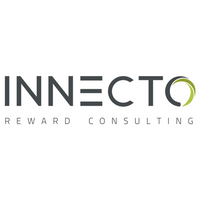Salary budget planning: 5 key benefits of a long-term strategy
While there may still be one planning cycle that HR practitioners point to as the main annual compensation review, in reality smaller activities throughout the year also drive reviews that may lead to adjustments in compensation.
Key budget impacting events, such as promotions, equity refreshes, and mid-year raises, happen regularly and need to be factored in.
When Aeqium compiled its recent 2025 Compensation Planning Trends Report, it found 86% of companies carrying out annual reviews, 43% running multiple merit cycles, and 8% with more than one promotion cycle in the year.
All of this indicates the growing complexities facing organisations, and the argument for looking beyond a single line-in-the-sand review.
Strategic planning
What are the key arguments for taking a more strategic, long-term approach to salary planning?
- Cross-functional alignment: As part of its report, Aeqium asked reward leaders to share common challenges in the compensation review process. The most significant challenge reported was limited access to data (22%), followed by a lack of real-time collaboration (15%) and limited interdepartmental collaboration (14%). Compensation planning can help HR, finance and leadership by fostering better coordination, information flow, and shared accountability.
- Better data analysis through adoption of HR tech: By cross-referencing the responses, Aeqium also found that limited access to data is associated heavily with companies still reliant on spreadsheets (25%) and HRIS tools (26%). Conversely, only 10% of companies using a dedicated software solution for pay review are struggling with data access, and those same companies are over three times more likely to find no obstacles in their compensation review process. By taking a longer-term, more strategic approach to salary planning, setting themselves up with a bespoke tech solution, and capturing and managing the data required to make informed and efficient decisions, they are better equipped to run the entire process.
- Increased managerial involvement: Manager input is crucial to informed compensation decisions and longer-term planning increases the likelihood of meaningful managerial touchpoints and intervention. While HR and compensation teams can provide market data and pay structures, day-to-day managers can offer real-time assessment and insight into how employees are impacting a business. In short, rather than leaning too heavily on HR-standard benchmarking, managers can help make sure pay adjustments reflect individual merit, business needs and team dynamics.
- Budgetary control and the power to pre-empt: Short-term, reactive planning limits visibility and creates risk. By contrast, strategic planning allows for better control over salary budgets, helping organisations anticipate the full range of compensation adjustments, model various scenarios and avoid last-minute surprises. With the luxury of time, companies can plan and manage merit increases and market pressures without overspending or compromising their pay philosophy.
- Pro-fairness and flexibility: Long-term planning also supports fairness and flexibility by enabling agile pay decisions while maintaining internal equity and consistency across the organisation. While most companies will plan to have no out-of-cycle adjustments, they often need to happen. Being able to plan how to manage these more discretionary adjustments HR can stay on the front foot and tie these into policies and procedures.
Sustainable compensation strategies are multi-year efforts that strengthen our retention, budgeting accuracy and organisational trust. Forward-looking companies are planning beyond the next raise.
Supplied by REBA Associate Member, Innecto Reward Consulting
The UK’s largest independent pay and reward consultancy, transforming pay into performance.








